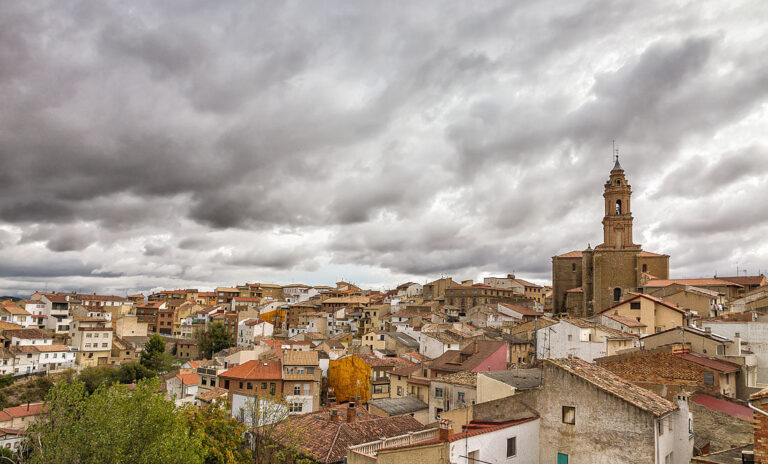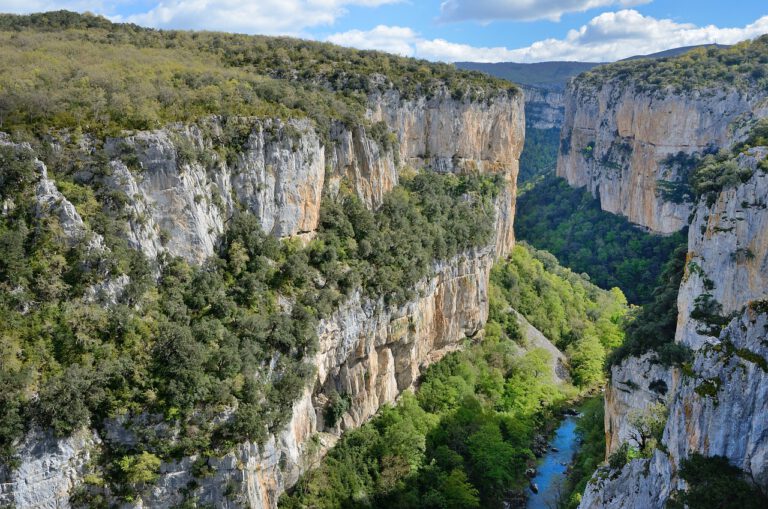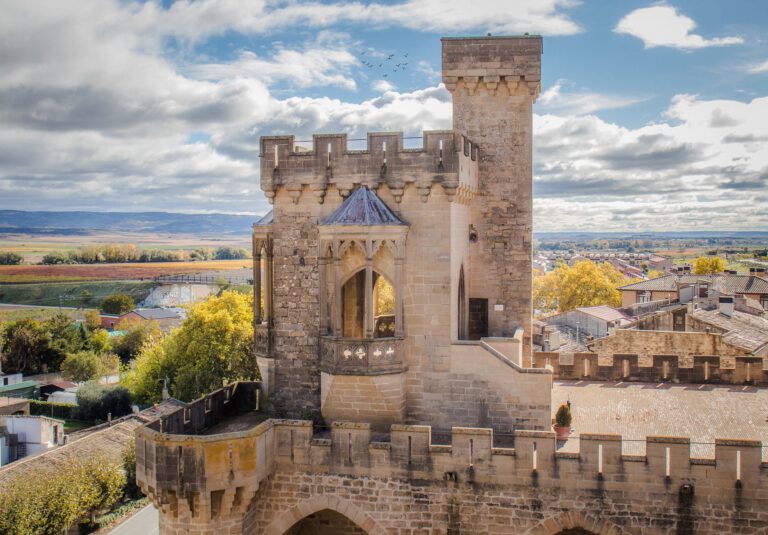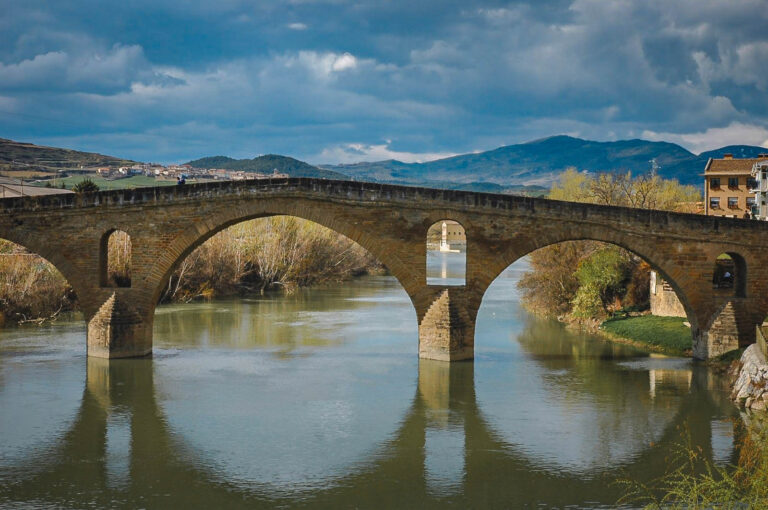Whether you're on a road trip through (Northern) Spain or planning a weekend getaway to Navarre, we've put together the perfect travel guide for you. In this overview, you'll discover the most beautiful sights of Navarre that you can explore in three days. Get inspired and make the most out of your trip. If your visit to Navarre is shorter, we recommend checking out Navarre in 1 day.
Visit Navarre in 3 days
Navarre has many beautiful sights, but it's impossible to visit them all in three days. To help you make the most of your short time in Navarre, we've selected the most impressive places you absolutely must not miss.
Day 1 – Baztán Region
The adventure in Navarre starts in the beautiful Baztán region, in the north of Navarre. This region is famous for its stunning landscapes, green valleys with typical white houses, and its rich history. It is named after the Baztán River, which flows through many small villages.
These picturesque villages, with their white houses and colorful flowers on the balconies, beautifully showcase the traditional northern Navarrese architectural style. Moreover, Baztán was the setting for the thrilling “Baztan Trilogy,” a popular Netflix series.
It’s a great experience to drive or cycle through this region and discover the charming villages. For a beautiful view, the Mirador del Valle de Baztán is highly recommended. This viewpoint, located along the NA-2540 road and near the village of Zigaurre, offers a stunning panorama of the green valleys and hills of the area.
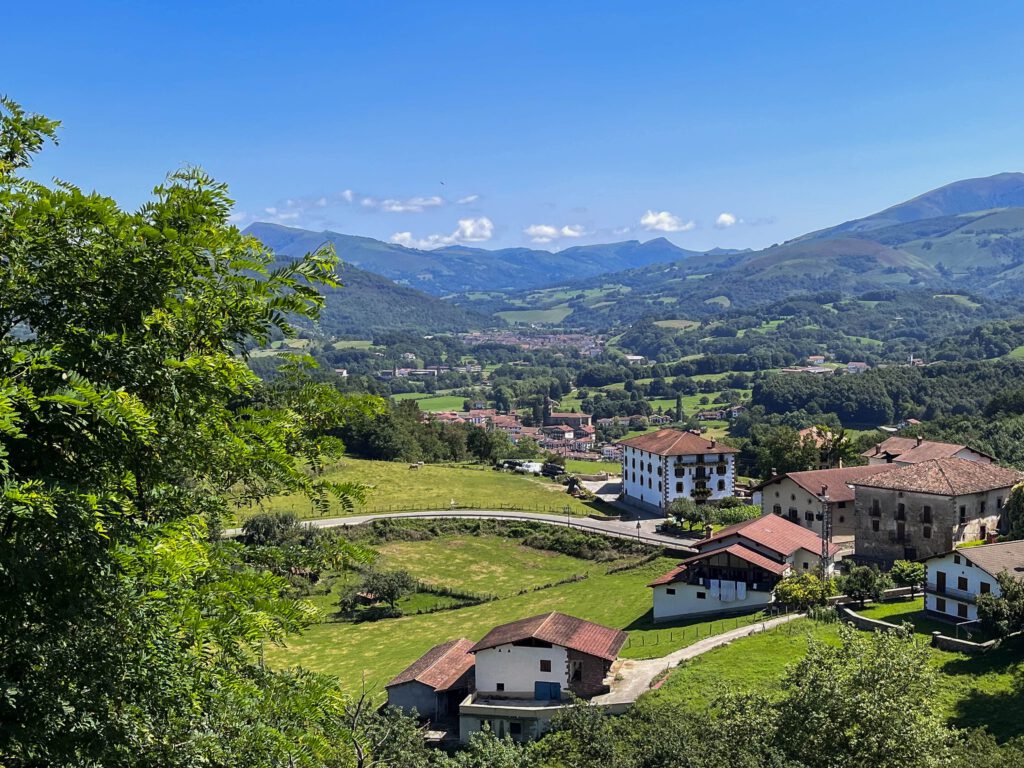
For dining in the Baztán region, our recommendation is the Santxotena Restaurant in Elizondo, and for meat lovers, the Arotxa Restaurant in the village of Legasa. For a good stay in the region, we recommend the Legate apartment or the Hotel Trinkete, both in Elizondo.
In the Baztán region, there are several places that we recommend visiting.
Elizondo
One of the nicest villages in the Baztán region is Elizondo, which is also the capital of the area. Elizondo has those charming streets with the typical white houses you see around here. The Bidasoa River runs through the village, giving it a calm vibe. Stone bridges connect the riverbanks, making it the perfect spot for a peaceful walk along the river.
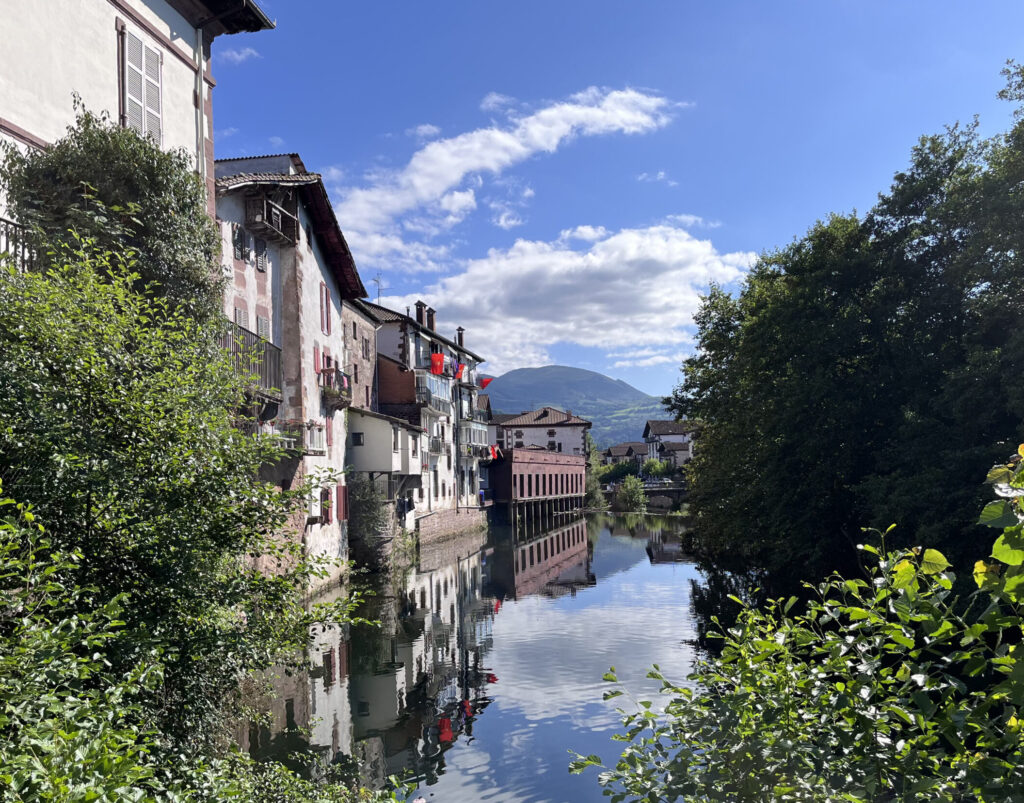
Amaiur-Maya
Another lovely village to visit is Amaiur-Maya. This little village played a very important role in the fight for the independence of the Kingdom of Navarre. In 1512, the kingdoms of Castile and Aragon conquered much of Navarre with the goal of annexing the Kingdom of Navarre to their territory, which led to Navarre losing its independence.
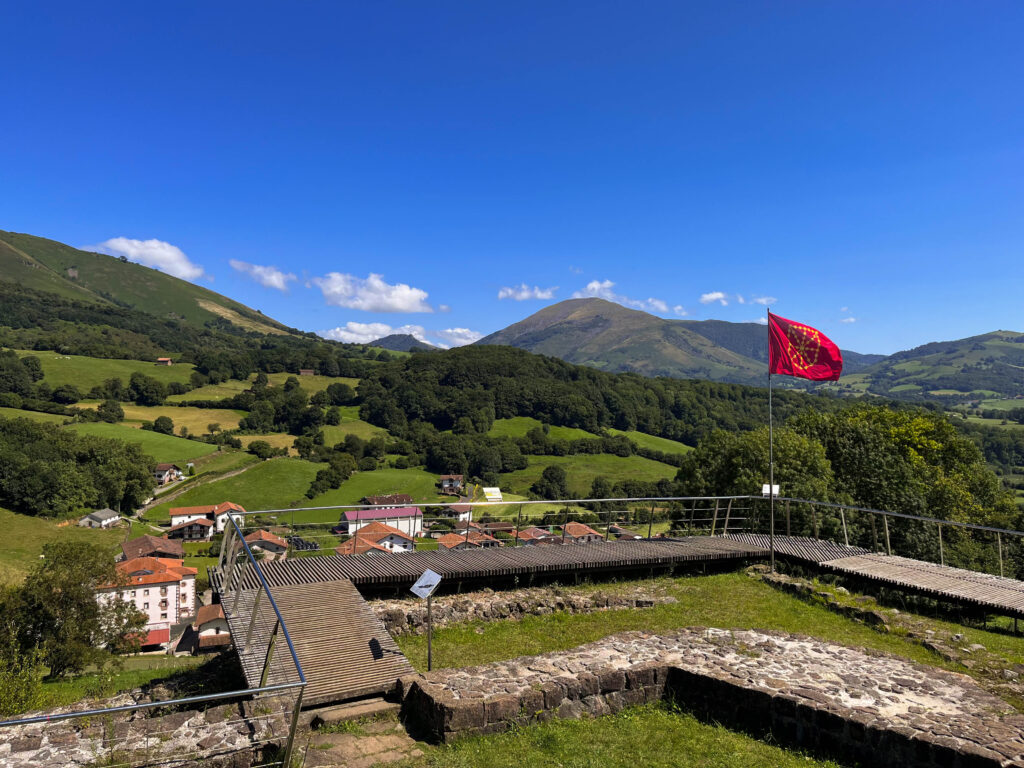
In Amaiur-Maya, there was a large castle, where Navarrese troops took shelter. Intense fighting took place here against the invaders until Navarre regained its independence in 1522.
The remains of the castle can be visited today, with a monolith in the center, which was built in 1922 as a tribute to the fallen troops who fought for Navarre's independence.

Xorroxin Waterfall and the caves of Zurragamurdi and Urdax
In addition to Elizondo and Amaiur-Maya, Baztán also hosts the famous Xorroxin waterfall. It’s a pleasant walk to the waterfall, accessible from the parking lot at the entrance of the village of Erratzu. The whole family can enjoy this beautiful walk, which takes about 2 hours (1 hour to the waterfall and 1 hour back), surrounded by beech and chestnut trees.

Close to the French border is the small village of Zurragamurdi, known for its legends of covens and witchcraft. Just 400 meters from this village, after a pleasant walk through the surrounding forest, you will find access to the cave of Zugarramurdi. The size of this cave is impressive: a 120-meter long natural tunnel with heights of up to 12 meters and two raised galleries. In Zugarramurdi, you will also find the Witch Museum (“Museo de las Brujas”). Here you can purchase tickets for both the cave and the museum.
3 kilometers from Zugarramurdi is another cave, the Urdazubi/Urdax cave. This cave is completely different from that of Zugarramurdi. The Urdazubi/Urdax cave is closed off from sunlight, unlike the Zugarramurdi cave, and here you'll find a stunning collection of stalactites and stalagmites, formed over thousands and thousands of years. For more information about the Urdazubi/Urdax cave and to purchase tickets, click here.
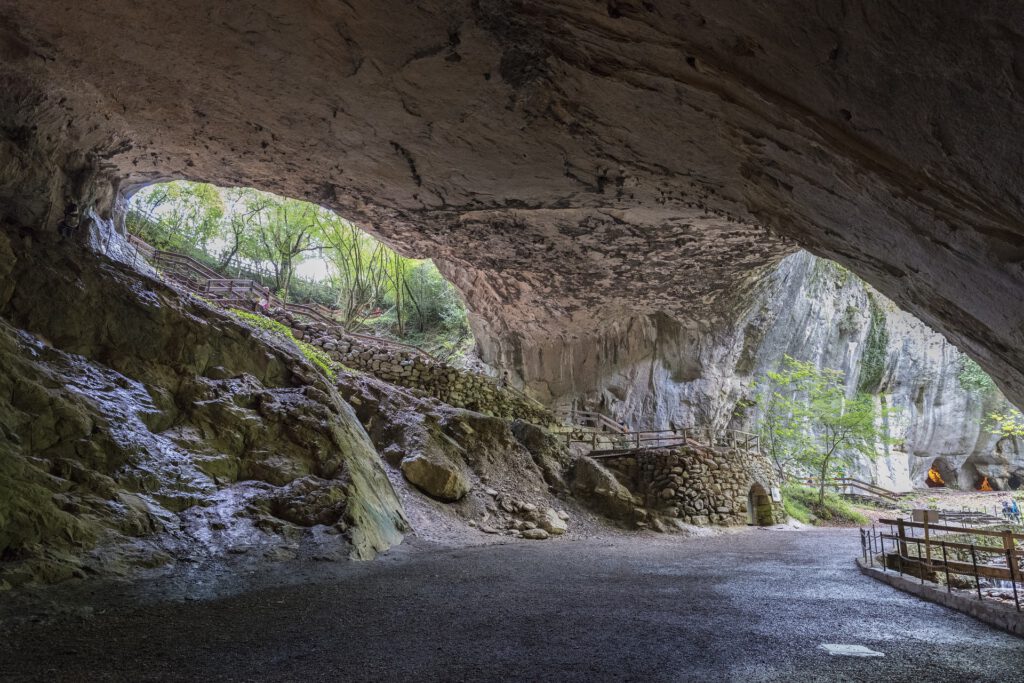
Day 2 – Pamplona
Pamplona is the capital of Navarre and is especially known for the San Fermín festivals. These festivals begin every year on July 6th at 12 PM with the chupinazo. They continue until midnight on July 14th. The San Fermín festivals are especially famous for the running of the bulls and the non-stop partying, with people celebrating both day and night.
However, Pamplona is also a great city to visit outside of these busy festivals. A walk through the old town is enough to experience the historical and cultural richness of the capital of Navarre. We recommend booking a tour to discover the interesting stories about the main spots in Pamplona.
Along the narrow medieval streets, you'll find many monumental buildings and iconic spots of this city. Churches like San Nicolás, beautiful and characteristic parks like the Jardines de la Taconera, the town hall, the cathedral of Santa María la Real, the Plaza del Castillo square, and much more.
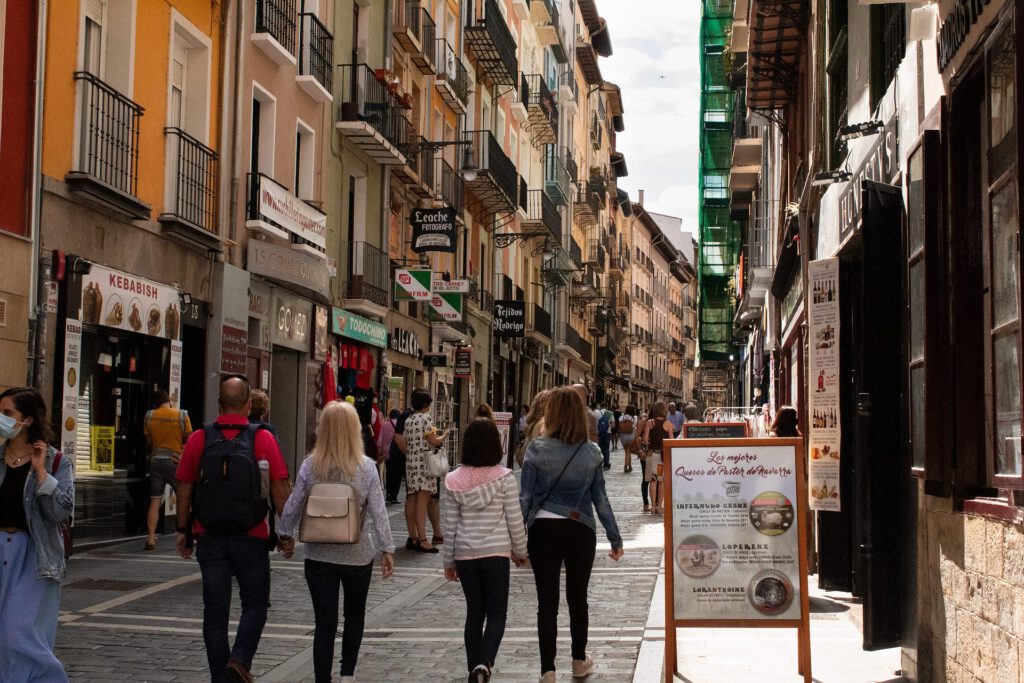
The old town of Pamplona is also full of bars where you can enjoy the diverse gastronomy of Navarre in small portions. These are the so-called pinchos/pintxos ("tapas"). It’s highly recommended to pair these pintxos with a delicious local wine. To try the typical pintxos, Bar Gaucho is the perfect place, offering a variety of pintxos and a cozy atmosphere.
Just a 4-minute walk from the town hall is the beautiful cathedral of Santa María la Real. This cathedral was built during the 14th and 15th centuries on the site of the ancient forum of Pompaelo. The northern tower of the cathedral houses María, the largest church bell in Spain. Inside the cathedral is one of the best Gothic cloisters in Europe.

Behind this cathedral is Caballo Blanco ("White Horse"), one of the most charming spots in the city. From here, you’ll enjoy the best views of the city, where you can admire the neighborhoods of Rochapea, Chantrea, and San Jorge, with the mountain of San Cristóbal and its abandoned fortress at the top in the background.
After a long day exploring the beautiful capital of Navarre, it’s time to have dinner. Our recommendation is the restaurant Iruñazarra, in the center of Pamplona. This restaurant serves typical Navarrese dishes, but with a more modern and refined style. Perfect for getting to know Navarrese gastronomy better.
For accommodation, we recommend the Hotel Europa, which is located 300 meters from the Iruñazarra restaurant.
Day 3 – Ujué, Olite and Bardenas Reales
To conclude the journey through Navarre, we start the last day in Ujué. This is a beautiful medieval village about 45 minutes drive from Pamplona and is listed in the list of Los Pueblos más Bonitos de España (“The Most Beautiful Villages of Spain”). A walk through the steep, labyrinthine streets is a wonderful experience. In addition, Ujué is also home to one of the most important monumental buildings of Navarrese medieval architecture. This is the Romanesque sanctuary-fortress of Santa Maria, which was built between the 11th and 14th centuries.
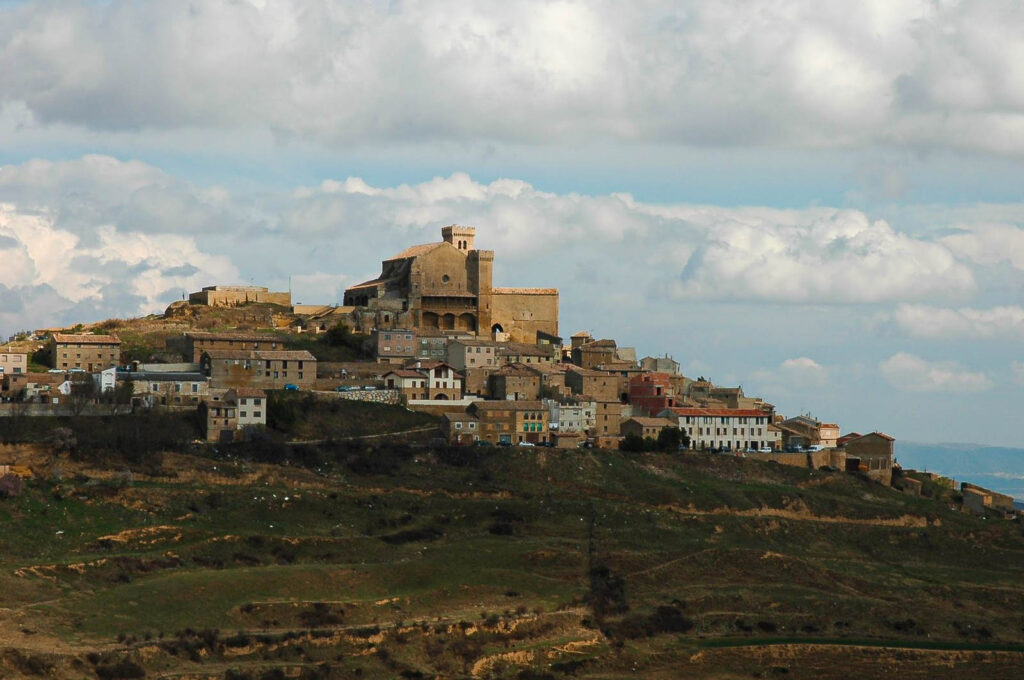
If the Navarrese village of Ujué is known for something, besides being one of the most beautiful villages in Spain, it’s for its delicious Migas del Pastor (“Shepherd’s Crumbs”). Migas is a traditional dish with humble origins. In its most basic form, they were made with ingredients that were accessible to every shepherd. These ingredients include stale bread, lamb fat, garlic, water, and salt.
Nowadays, more ingredients are used, such as tomato, serrano ham, and mushrooms, creating a perfect combination of flavors, colors, and aromas. These migas can be found in many restaurants in Navarre, but for an authentic experience, you must go to Ujué. If you want to try these migas, we recommend the Restaurante Mesón de las Torres. If this is the case, our recommendation is then to first visit Olite and then Ujué.
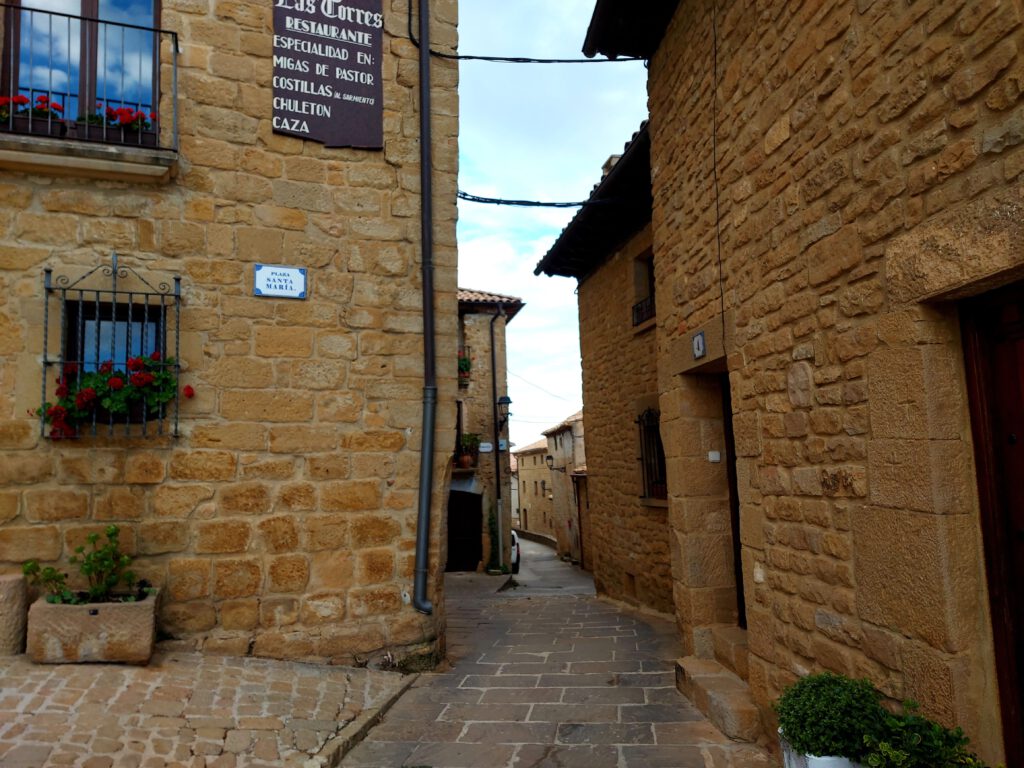
Olite
Olite is a small town about a 35-minute drive from Pamplona and 20 minutes from Ujué. It is home to one of Navarre’s most popular tourist attractions, the Royal Palace of Olite.
The Royal Palace of Olite is the perfect place to learn more about Navarre's medieval history. It can be explored inside, with access to, among other things, galleries, rooms, and the various towers. In addition to exploring the palace, Olite has many more wonderful experiences to offer. Walking through the medieval alleyways of the old town or visiting its stunning churches are just a few examples.
We recommend eating in Olite, unless you really want to try the Migas. In that case, we suggest visiting Olite first and then Ujué. Our recommended restaurants in Olite are Gambarte or Casa Del Preboste, and for those who enjoy fine dining, we recommend the Parador de Olite restaurant. All of these restaurants serve typical Navarrese dishes.

Bardenas Reales
45 minutes by car from Olite, you will find the Bardenas Reales, one of the most visited attractions in Navarre. The Bardenas Reales is a semi-desert in the southeastern part of Navarre.
This is one of the most popular attractions in Navarre, thanks to the enchanting ravines and plateaus that form an almost lunar landscape. In recent years, the area has become even more popular due to its appearance in the TV series Game of Thrones.
The Bardenas Reales offer more than 700 kilometers of paths for nature lovers and are best explored by car or bike. However, we also recommend taking a guided tour to learn the story behind the Bardenas.
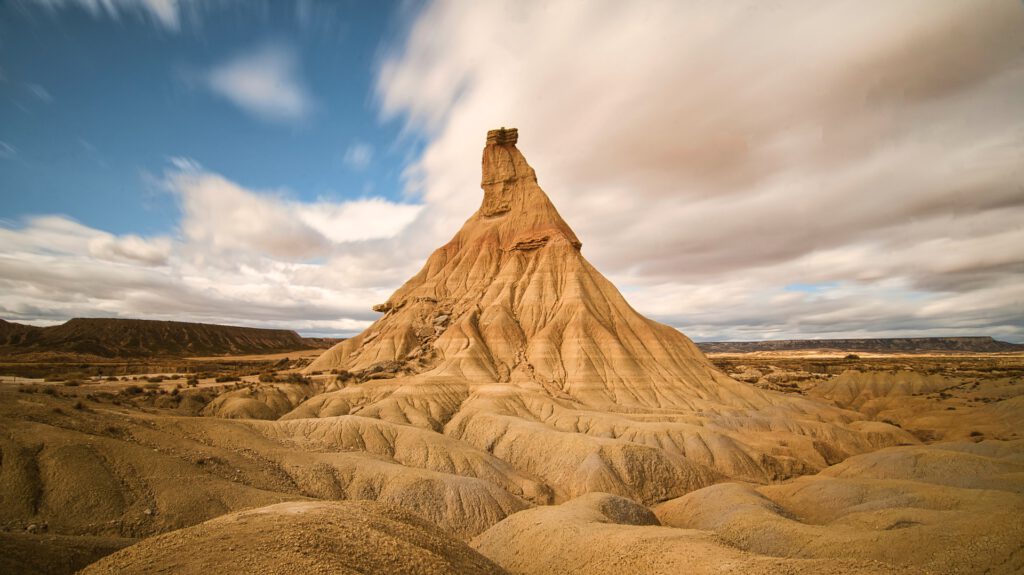
For an overnight stay, our recommendation for a unique experience is the Hotel Aire de Bardenas. For those who prefer something more conventional, we recommend Alojamiento Rural La Alberca, known for its hospitality and ideal for nature lovers.
Navarre has so much more to offer than we can fit into this three-day trip. From stunning natural parks and charming villages to amazing food and old traditions, this region is full of surprises. We encourage you to keep exploring and let yourself be amazed by everything it has to offer.

